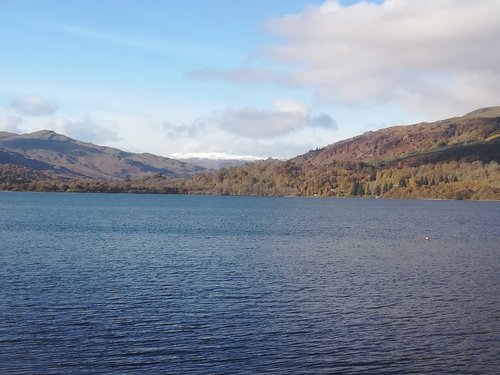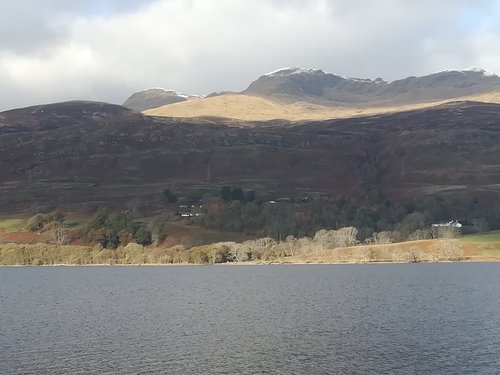The Week of Creation always starts on the last Sunday of September in Hungary, where, since 2009, the Care for Creation Ecumenical Working Group has been preparing for this beautiful season with the participation of Catholic and Protestant churches. Although the concern about climate change often causes deep eco-anxiety with good reason, now the working group aims to shift the emphasis from greediness and consumerism into joy for creation and hope. Each year, there is a highlighted theme; this year it is Gratitude and Responsibility, focusing on the beauty of this world and the task to guard the created world.
Each year the Working Group issues a booklet for local communities who wish to join in the celebration. Here, we share a meditation by Rev. Tamás Kodácsy, President of the RCH Eco-Congregation Council.

The Lord is Near
“The Lord is near to all who call on him, to all who call on him in truth.” (Psalm 145:18)
In the biblical time, ‘being near’ referred to distance, not only in time and in space, but the expression was also understood spiritually, as the close relationship with God. “Those who are near” were the ritually clean priests without any diminution, who by their service could come near to the holiness of God (Leviticus 21:21-23). Coming near was a spiritual and physical strive for the divine cleanliness and perfection for the created ones. A “person coming near” was the word used for those who were newly converted, such as, the proselyte who used to be pagan, or in the Qumran community, a new member of the covenant. Today this expression is still used in Hungarian language when someone is near to the fire, meaning that the person has access to important information that is inaccessible for others. (As people cook a meal on an open fire, the nearer has better access to get a good portion.)
When we speak of care for creation, everyone is equally near the fire. Everyone can equally be aware of how we are destroying and exploiting the created world instead of taking care of it in a responsible way on behalf of God. Moreover, this became evident everywhere, either we go to the bottom of the sea or the top of the mountains.

When I hike in mountains, many times, I get the feeling that I am coming near to God. The “Horeb” feeling culminates when I look down from the top and I see the place where I spend every day passing by from a different perspective. The beauty of nature makes me feel even more natural and I take pleasure in the creation work of God. Once we reach the top of one of the Appalachian Mountains, we see the dying pine forest wherever we look. These are the consequences of human activities down the mountain: air pollution and acid rain destroying the trees. There, I did not feel distance from consumer society; rather, I saw the consequences of it. Today there is no place, where we could contemplate the beauty of the created world, free from human pollution.
However, as Paul writes, “The Lord is near.” By this, he reverses the way of thinking. He puts an end to the human strive to get nearer to God and for human beings to forget, on their own, their arrogance and greediness that destroys the living space as well. In the New Testament, it is not the human being who comes near to God, rather it is God who comes near, by becoming flesh. That is how the Lord comes near. By the nearness of the Lord, the Holiest of the Holy opens up and at the end, the One, who, at the beginning had created the world, enters it.
This is also a promise for the apocalypse. For two thousand years, we have been living in the latter days, waiting for the second coming of Jesus. Christians are aware of the end due to climate change. Despite of this, they do not say the “end is near,” but rather, “the Lord is near.” This assumes such a personal and dynamic status that is real but it is not resigning. It is without illusion but not without hope. We sense the end of the world is near, but still we do not pass up on our responsibility. We do not forget our gratitude because the Lord has created a beautiful and good world. The nearness of God is not a static, rigid state, but rather God comes near to us freely. Let us, too, be free to do good in the created world! “The Lord is near to all who call on him, to all who call on him in truth” (Psalm 145:18).
Prayer
My God, our Lord, our Father, who encourages us to call You: Come near to us! Come near and be with us every day. Be with us when we are standing in a spacious place; be with us when the tightness of our heart compels us. Do not let us perish, neither in depth nor in height. You are near to us in heaven and in this world through your embodiment. We call You, our Lord, come near so we may live with You, and in Your nearness - with gratitude and responsibility. Amen.
Originally published in the booklet of the Care for Creation Ecumenical Working Group
Text and Photos by Tamás Kodácsy
Translated by the Ecumenical Office